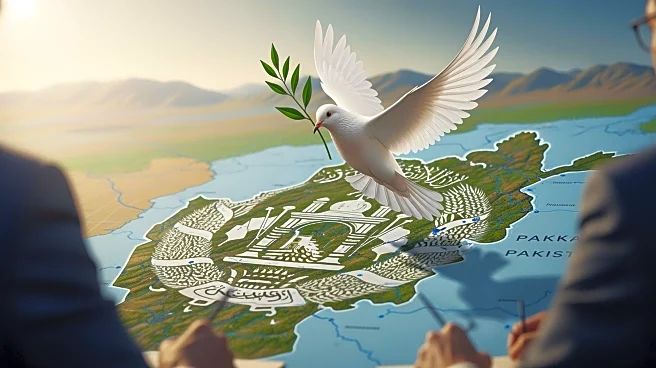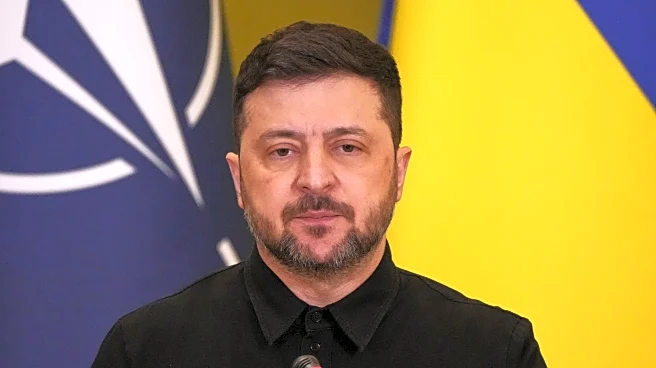What's Happening?
President Trump has expressed his intention to resolve the ongoing crisis between Afghanistan and Pakistan 'very quickly' as peace talks between the two nations continue. The conflict, which has seen deadly clashes and heightened tensions, is being addressed
through discussions aimed at establishing a durable peace framework. The talks, held in Istanbul, follow a fragile ceasefire achieved earlier in Doha. Pakistan accuses Afghanistan of harboring militants who cross the border for attacks, a claim denied by Afghanistan's Taliban rulers. The discussions have led to draft proposals focusing on border security and the establishment of a monitoring channel for ceasefire violations.
Why It's Important?
The resolution of the Afghanistan-Pakistan crisis is crucial for regional stability, particularly in an area where groups like al-Qaida are attempting to regain influence. Successful peace talks could lead to improved security and diplomatic relations between the two countries, reducing the risk of further conflict. President Trump's involvement may strengthen U.S. ties with Pakistan, which has praised his previous diplomatic efforts in the region. A stable Afghanistan-Pakistan relationship could also contribute to broader peace efforts in South Asia, impacting U.S. foreign policy and security interests.
What's Next?
The continuation of peace talks and the implementation of proposed security measures are expected to be the next steps. Both countries have submitted drafts outlining their conditions for peace, including non-violation of territory and airspace. The establishment of a monitoring channel for ceasefire violations is also under discussion. The outcome of these talks could influence future diplomatic engagements and military strategies in the region, with potential reactions from international stakeholders monitoring the situation closely.
Beyond the Headlines
The crisis highlights the complex geopolitical dynamics in South Asia, where historical tensions and militant activities pose ongoing challenges. The involvement of President Trump underscores the U.S.'s strategic interest in the region, potentially affecting its foreign policy and military presence. The peace talks may also have implications for regional alliances and the balance of power, as countries navigate their relationships with the U.S. and each other.
















